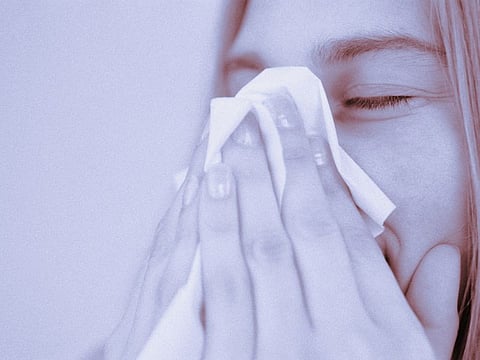FRIDAY, Jan. 8, 2016 (HealthDay News) -- Cold and flu season is here, but that doesn't mean you have to resign yourself to days of misery. There are a number of ways you can protect yourself.
While there's no vaccine to protect against colds, nearly everyone aged 6 months and older should receive a flu vaccination, according to the U.S. Food and Drug Administration. The vaccine is available as a shot or nasal spray. It's best to be vaccinated by October, but getting the vaccine in January or later can still offer protection, the FDA said.
Flu vaccination is especially important for people at high risk for serious flu complications. The FDA said this group includes: children younger than 5 years, and especially those younger than 2; pregnant women; people with chronic health conditions such as asthma, diabetes, or heart and lung disease; people 65 and older; and health care workers.
So what can you do besides get the flu vaccine? The FDA said healthy habits can protect you from colds and the flu, too. Both types of viruses can be picked up from contaminated surfaces, so it's important to wash your hands often and teach children to do the same. Wash hands with warm water and soap for 20 seconds.
Try to avoid exposure to people with a cold or flu, and keep infants away from crowds for the first few months of life, the FDA said.
Other ways to reduce your risk include healthy eating, sufficient sleep, exercise and keeping your stress in check.
Each year, more than 200,000 people in the United States are hospitalized due to flu-related complications, including 20,000 children younger than age 5, the FDA said. Between 1976 and 2006, the number of flu-related deaths each year ranged from about 3,000 to about 49,000.
During the 2014-15 flu season in the United States, there were about 40 million flu-associated illnesses, 19 million flu-related medical visits, and 970,000 flu-related hospitalizations, the highest estimate in a single flu season, the FDA said.
More information
The American Academy of Family Physicians has more about flu prevention.


